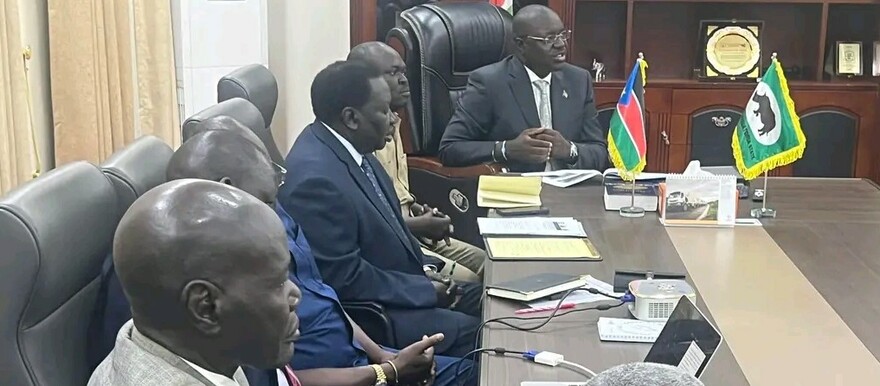A state ad-hoc committee tasked to investigate rampant pollution caused by unlawful dumping of waste into the river Nile within Juba has unveiled its preliminary findings to the Central Equatoria State Governor Emmanuel Adil Anthony on Tuesday.
Speaking to the press after their briefing, the acting chairperson of the committee, who also doubles as the Deputy Mayor for Physical Infrastructure, Thiik Thiik Mayardit, confirmed that the meeting discussed how pollution on the river Nile can be solved.
“This morning, we held a meeting with His Excellency the governor of Central Equatoria after forming the committee under the chairmanship of Hon. Lily Kafuki, the state minister of Agriculture and Forestry. We were later joined by the Undersecretary in the Ministry of Environment to come and deliberate on pollution which we have seen in the river Nile and a lot of things, we have tackled them,” Deputy Mayor Thiik Thiik explained.
The Undersecretary in the Ministry of Environment, Dr. Joseph Africano, said there is a need to develop a good waste management system and task Juba City Council to implement the initiative.
“We are going to look into some practical solutions. So the most important thing is developing a good waste management system in town, liquid waste management and even chemical and medical waste management. We are happy with the report, and I think now, the responsibility lies with the city council. They will be implementing some things starting today,” Dr Africano said.
Dr. Africano further appealed to the general public to uphold all theoretical and practical measures to preserve the environment.
“All those who are polluting the rivers will be given notices to improve their drainage systems, their sewage and to stop all the pollutions they have been doing. There are two facilities which I am not going to mention their names, that will be taken care of immediately because of all the pollution they are causing. We will be working as a national, state governments and the city council to ensure that people in Juba city or in the whole of South Sudan have a safe, clean environment for us not to fall sick from what we consume like water and food,” Dr. Africano added.
Among some of the outcomes of the meeting, the committee has directed for the immediate closure of the poorly managed facilities in terms of waste management and re-directed hoteliers and other companies operating along the Nile to put correctional environmental measures. This must be done before the final report is submitted to the Council of Ministers sitting for further inspection before the report is operationalised.




